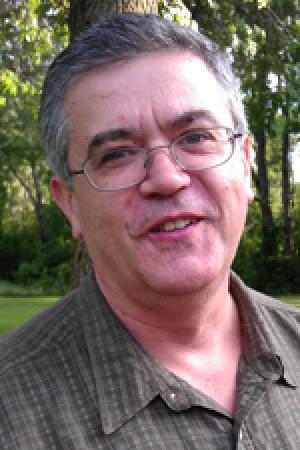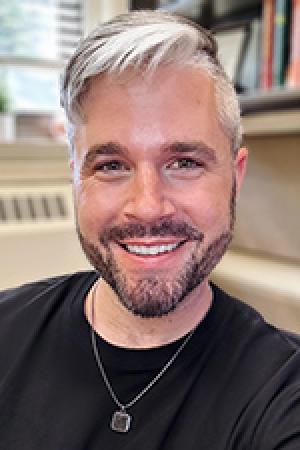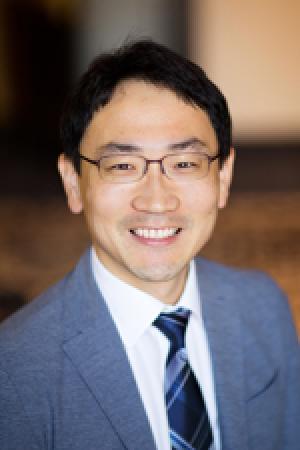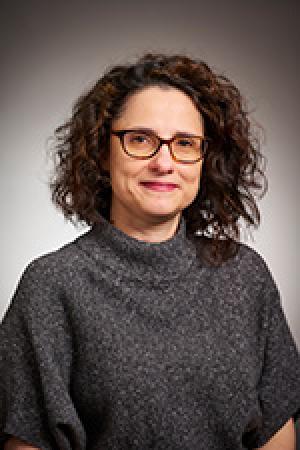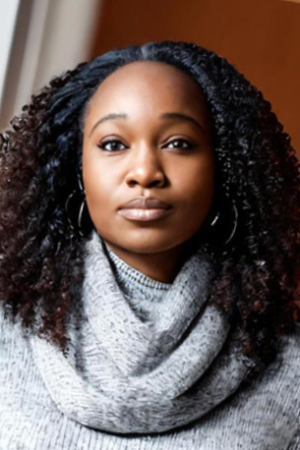About
The Lab is an interdisciplinary group of scholars (researchers and students) and practitioners united in the pursuit of new knowledge and focused on addressing the emerging learning and education challenges facing workers in the rapidly evolving workplace. Lab members bring a broad scope of expertise to these challenges, representing an array of disciplines including human resource development, organizational leadership, social work, and learning science, as well as specializations in training and development, knowledge management, learning technology, inclusive education, LGBTQ+, people with disabilities, and adult learners.
Lab News
- "The Trouble With Generation Discourse—Insights From Research" Association for Talent Development (June 2025)
- Announcing the winners of the 2025 WDRL Student Challenge (January 2025)
- "Conference presentation explores how to be an ‘employer of choice’ in transportation" UMN Center for Transportation Studies (January 2025)
- "Working for the Northside" CEHD Connect (May 2024)
- "Working on the Workforce" CEHD Connect (April 2022)
Stay Connected with WDRL
Sign up below to receive email communications from the University of Minnesota's Workforce Development and Research Lab (WDRL), including our semi-annual newsletter. We will not share your information, and you can unsubscribe at any time.
Co-Directors
Members and Affiliates
The Workforce Development Research Lab involves collaboration between affiliated faculty, students, professional experts, and organizations.
Christina Cauble, LNHA, HSE, MBA
Christina Cauble, LNHA, HSE, MBA, is an OLPD PhD student with a focus on Human Resource Development. She is an enthusiastic participant in the aging services field as a business leader with an emphasis on retirement communities, nursing care, assisted living, and aging services in both nonprofit and for-profit sectors. Christina’s strengths include development and implementation of strategic business plans, human resource and financial management, and creating growth in profits. She is currently the Geriatric Education Specialist at the U of M Medical School. Christina also serves on the Minnesota Board on Aging, and is on the Board of Directors for Friends and Co, an organization that helps combat social isolation of older adults. She has held leadership positions with a number of health care communities, including Ecumen, Ebenezer, and Southview Acres Health Care Center. Christina was awarded the AARP Disrupt Aging Classroom certification.
Hyerim Cho
cho00229@umn.edu | Organizational Leadership, Policy, and Development, CEHD
Hyerim Cho is a doctoral student in the Human Resource Development program. Her areas of interest are workplace learning and development, diversity and inclusion, and HRD in public sector. She has a bachelor's degree in Education and Psychology, a master's degree in Corporate Education, and 5 years of experience as a human resource development practitioner in a South Korean public enterprise.
Quinn Oteman
otema001@umn.edu | School of Social Work, CEHD
Quinn is a PhD student in the School of Social Work. He is an MN LEND Fellow through the University’s Institute on Community Integration that prepares future leaders who will serve children with Autism Spectrum Disorders (ASDs), other neurodevelopmental and related disabilities (NDDs). His research encompasses multiple aspects of community inclusion for people with disabilities.
Nathan Price
nkprice@umn.edu | Department of Organizational Leadership, Policy, and Development
Justin Mark Hideaki Salisbury, MEd, NOMC, NCRTB
salis082@umn.edu | ORCID: https://orcid.org/0009-0009-1786-2786 | ResearchGate: https://www.researchgate.net/profile/Justin_Salisbury
Justin Mark Hideaki Salisbury is a graduate student in the Department of Curriculum and Instruction at the University of Minnesota-Twin Cities. His research agenda is guided by the pressing needs expressed by the organized blind, especially when those needs relate to potential policy problems and solutions. One of his major research areas is disability employment. He is interested in the parts of disability inclusion that reach beyond mere compliance with legal accessibility mandates, as well as how multiple oppressive systems intersect with the education and rehabilitation of the blind. Vocational rehabilitation is an integral part of workforce development because it actively supports disabled people in accessing employment by providing customized training, job coaching, and other key services to address their specific needs, allowing them to contribute to the workforce and reach their full potential.
Dadang Sunandar
Dadang Sunandar, sunan002@umn.edu
Dadang is a seasoned workforce planning professional with over 15 years of experience in assessing and enhancing human resources and organizational policies. He led the creation of Indonesia's first risk-based HR audit in the public sector and authored guidelines for auditing HR functions and technical competencies for the Ministry. Dadang has provided consulting services on major initiatives, including organizational restructuring and employee benefit reform, and holds certifications in HR auditing, risk management, and organizational development. He obtained his Master's degree in Human Resources and Industrial Relations from the University of Minnesota and is currently pursuing a Ph.D. in Human Resource Development at the same institution. Over the past two years, Dadang has been an active member of the research and consultation team for the Minnesota Department of Transportation, focusing on improving workforce planning, recruitment, retention, and development within the agency.
Diele Lobo, Ph.D.
Postdoctoral Scholar, Midwest Climate Adaptation Science Center (MW CASC) hosted by the Institute on the Environment at the University of Minnesota
lobo0010@umn.edu
Taylor Cavallo Siering, PhD
sieri004@umn.edu | Organizational Leadership, Policy, and Development, CEHD
Taylor Cavallo Siering is a graduate of the University of Minnesota Human Resource Development PhD program. Her research interests are centered around the intersection of gender, labor, and capitalism; exploring the home sphere as a space of labor for women and mothers; and the ways in which work and labor craft meaning and identity for individuals (specifically millennial women) and within society at large. She began her career working in human resources and talent development in advertising agencies in New York City.
Paul M.A. Baker, PhD
Senior Director, Research and Strategic Innovation at Georgia Tech's Center for Advanced Communications Policy (CACP)
500 10th Street NW, Atlanta, GA, 30332 paul.baker@gatech.edu
Richard A. Braden
Senior Director of Technology Apprenticeships, Strategic Workforce Development, CompTIA, Inc.
3500 Lacey Rd STE 100, Downers Grove, IL 60515 rbraden@comptia.org
John Bricout, PhD
Chair, Department of Social Work at the University of Texas at San Antonio
UTSA Circle San Antonio, TX 78249 john.bricout@utsa.edu
Thomas J. Chermack, PhD
Professor and Chair, Program in Organizational Learning, Performance and Change, Colorado State University
Fort Collins, CO 80523 thomas.chermack@colostate.edu
Anne-Marie Kuiper, PhD
Director of Strategic Development, Summit Academy OIC
935 Olson Memorial Highway, Minneapolis, MN 55405 AKuiper@saoic.org
Michael P. Leimbach, PhD
Vice President, R&D Solutions, Wilson Learning Corporation
8000 W 78TH St, Ste 200, Edina, MN 55439 michael_leimbach@wilsonlearning.com
Recent Publication: Leadership development in the age of the Great Resignation. Training. https://lnkd.in/gTAWjqp2
Jennifer P. Lundblad, PhD
President & CEO, Stratis Health
3001 Metro Drive, Suite 280, Bloomington, MN, 55425
jlundblad@stratishealth.org
Lisa Wocken, PhD
DAO Educator/Researcher; Founding Member, TalentDAO and Bolster Leadership
Panpan Zhang, PhD
Teaching Assistant Professor, Northern Arizona State University
Human Resource Development Laboratory
Maria Curie-Sklodowska University, Lublin, Poland
https://www.umcs.pl/pl/hrd-lab-zadania,24070.htm
Minnesota Council of Nonprofits
2314 University Ave. West #20. St. Paul, MN, 55114
Wooseok Song, Human Resource Manager, wsong@minnesotanonprofits.org
https://minnesotanonprofits.org/
Projects, Publications, and Presentations
Current Projects
MnDOT Workforce Development Research and Engagement
Ken Bartlett and Alexandre (Sasha) Ardichvili, Principal Investigators
A team of researchers from the Workforce Development and Research Lab works on this year-long applied research and consulting project under a contract between the UMN and the Minnesota Department of Transportation. The WRDL team provides MnDOT assistance by engaging in workforce development research, scenario planning, and advising to the Workforce Development Council. All activities adopt a collaborative approach with agency subject matter experts and representatives from relevant employee and stakeholder groups to consider appropriate recommendations, outcomes, and implementation plans. The project will be completed by June 2026.
DIVAS for Social Justice
Project Sponsor: Clarisa James, Executive Director & Co-Founder; Faculty Supervisor: Stephanie Sisco, Assistant Professor
Dr. Stephanie Sisco, representing the Workforce Development and Research Lab (WDRL), is leading a strategic partnership with DIVAS for Social Justice as the organization expands its work from New York to Minnesota. DIVAS (an acronym for Digital Interactive Visual Arts Sciences) was co-founded by Black women committed to advancing justice in underserved communities. Since 2019, DIVAS has earned a strong reputation in Brooklyn, NY, for empowering communities to harness technology and visual arts as tools for social change. Over the past nine months, DIVAS co-founder and Executive Director Clarisa James has led a series of exploratory workshops in South Minneapolis’ Ward 9 to inform the development of a new social justice makerspace. In collaboration with DIVAS, WDRL is playing a key role in ensuring that the makerspace is both intergenerational and inclusive of diverse learning styles. WDRL is committed to assisting DIVAS with identifying organizational and educational strategies to design a space that resonates with community members ranging in age from 8 to 80 years old.
To advance this initiative, Dr. Sisco recruited undergraduates from the UMN Leadership Minor program to help with marketing workshops and events. Dr. Sisco has also supervised doctoral students in the Human Resource Development program to help identify local partners and funding streams to support DIVAS. Together, WDRL and DIVAS are launching several community-engaged participatory research projects that explore how expanding access to STEAM (science, technology, engineering, art, and mathematics) can equip both youth and adults to pursue STEAM workforce opportunities and advocate for justice in their communities. MnDOT Workforce Development Research and Engagement
A team of researchers from the Workforce Development and Research Lab works on this year-long applied research and consulting project under a contract between the UMN and the Minnesota Department of Transportation. The WRDL team provides MnDOT assistance by engaging in workforce development research, scenario planning, and advising to the Workforce Development Council. All activities adopt a collaborative approach with agency subject matter experts and representatives from relevant employee and stakeholder groups to consider appropriate recommendations, outcomes, and implementation plans. The project will be completed by June 2026.
Northside Job Creation Team
Stephanie Sisco, Principal Investigator
Dr. Stephanie Sisco is currently collaborating with the University of Minnesota Urban Research and Outreach-Engagement Center (UROC) to explore and evaluate new resources, strategies, and possibilities for the Northside Job Creation Team (NJCT). In 2012, this diversified group of stakeholders joined together to bring 1,000 jobs to North Minneapolis. The NJCT advocated specifically for liveable-waged employment opportunities that offered benefits for Northside residents and imposed the least amount of environmental constraints on Northside neighborhoods. They achieved that goal by 2019 and exceeded their expectations. The incredible accomplishment commissioned by the NJCT has led many to wonder what other possibilities can be realized with their shared vision, dedication, and joint resources. Dr. Sisco is leading this project and representing the CEHD Workforce Development and Research Lab to explore these curiosities through workforce development analysis and mixed-method research.
Advanced Rehabilitation Research Training (ARRT) Fellowship Project
John Bricout, Collaborator; Quinn Oteman, Graduate Student Investigator
The project involves the design and implementation of an innovative Postdoctoral training program for four individuals with a STEM background (Engineering or Computer Science). The Fellows will focus on advanced disability and accessible technology policy related to community participation and employment, and information and communications technology (ICT) policy pertaining to accessibility and usability for individuals with disabilities. The ARRT Fellowship offers a highly selective, intensive two-year cohort training program preparing Fellows for leadership roles enhancing opportunities for people with disabilities in community participation, employment, and ICT access, using inclusive advanced disability and technology policy tools and knowledge. Fellows are currently being recruited, following a successful virtual workshop, and an ongoing scoping study of cutting-edge inclusive disability and technology policies. There will be additional empirically-based workshops, as well as hybridized workforce development training, together with interdisciplinary research collaborations, presentations, and publications. (UMN Component: 3/1/22-2/31/23)
Granting Agency: National Institute on Disability and Independent Living and Rehabilitation Research, (Georgia Institute of Technology) PI, Nathan W. Moon, Ph.D. (6/1/20-5/31/25)
Completed Projects
MNDOT Operations Division Recruitment and Retention Strategies
The WDRL conducted the applied research and consulting project under a contract between the UMN (through its Center for Transportation Studies) and the Minnesota Department of Transportation Operations Division between October 1, 2023, and October 1, 2024. This effort was led by Professors Ken Bartlett and Alexandre (Sasha) Ardichvili, with the participation of three graduate members of the Lab. The Lab assisted the MnDOT Operations Division in identifying critical issues in transportation and developing research, education, and outreach programs. The project involved, among other things, the development of workforce planning strategies, research, data analysis, scenario planning, and assessment of current and future state effectiveness on workforce strategies.
Policy Implementation Barriers in Tanzania (WDRL 2023 Student Challenge Competition Project)
Ashley Watson, PhD
Ashley Watson, PhD has worked with the Mandela Washington Fellowship (MWF) since 2021. In collaboration with Selemani Makwita, a 2022 MWF Fellow and Executive Director of Action for Democratic Governance (A4DG), Ashley focused on barriers to policy implementation of a recent ruling that allows young mothers and pregnant girls in Tanzania to return to school. On February 17th, they hosted a Stakeholder’s Workshop involving girls and young women, school leaders, and local level government officials to develop a collective advocacy agenda to address the re-entry policies targeting out-of-school young people.
Growing Tourism Leadership Webinar Series (WDRL 2023 Student Challenge Competition Project)
Hyerim Cho
Hyerim Cho, a doctoral student in the HRD program and a graduate member of the WDRL, consulted with the UMN Tourism Center to help revamp the Growing Tourism Leadership Webinar Series. Her work involved conducting interviews with past and prospective program participants and trainers to determine the training needs of potential participants in the webinar series. In addition, Hyerim studied best practices of similar centers around the country. Based on her field research, she developed a strategy to enhance the program in terms of content and structure. The project was finalized in June 2023, and the Director of the Tourism Center, Dr. Xinyi Qian, expressed high level of satisfaction with the project results.
Three Research/Consulting Projects with Non-profit Organizations
Project with CompTia Identifies Best Practices for Tech Apprenticeship Programs
Ana Carolina Rodriguez, Graduate Member of the WDRL, and Lauren L. Jones, both PhD students in the HRD program, partnered with CompTIA to investigate best practices for technology-related apprenticeship programs. CompTIA is a non-profit organization that offers education, training, certifications, advocacy, philanthropy, and market research to support the development of the IT ecosystem. Tech apprenticeship programs can address a crescent demand for tech professionals in the workplace and contribute to developing a more diverse workforce by tapping into underexplored populations. The project included interviews with key stakeholders and secondary data collection. The outcome was a report containing actionable strategies organizations have considered effective for the success of their apprenticeship initiatives.
Student Researchers Help Address Food Insecurity Challenges in Twin Cities
Taylor Cavallo Siering, PhD and Justine Mishek, PhD (students in the University of Minnesota HRD program at the time), worked with PRISM, a non-profit organization, inclusive of a food shelf, that supports the needs of individuals within the Twin Cities suburbs. Food shelves are a central resource for those experiencing barriers to meeting basic needs and due to the pandemic, more individuals are experiencing challenges related to food insecurity and poverty. However, as a result of the COVID-19 public health emergency status ending, there are fewer benefits available and more individuals than ever are utilizing food shelves. In this project, the student researchers explored the connection between food insecurity, poverty and intersectionality, as food insecurity and poverty have a profound impact on those who hold marginalized identities, specifically related to gender, ability, age and race. The researchers also explored how PRISM is well positioned to focus on supporting these individuals and others who face challenges given their organizational emphasis on contextualizing food insecurity as an issue that involves other realities than just food.
Student Research Team Analyzes Transformational Change at Daily Work
Daily Work is a non-profit organization in the Twin Cities that assists over 200 job seekers annually in finding job placement. The primary demographic they work with is low-income immigrants residing in Ramsey County, which has the 4th highest poverty rate in Minnesota. The work done by Daily Work goes far beyond job placement, utilizing relationship building and a holistic approach intended to develop the whole person. Bethany Brausen and MJ Shim, PhD students in the HRD program at the time, were asked to lead a project assessing the transformational change process experienced by those involved in Daily Work. Qualitative data was collected through semi-structured interviews with the 4 main groups of people within Daily Work: job seekers, social work interns, volunteers and staff members. Findings from the project showed how relationship building and connection created transformational change areas for each category of people. Including but not limited to: increases in mental health and wellbeing, a broadened social/cultural understanding, higher integration into society and personal development.
UMN Tourism Center
Panpan Zhang, Graduate Student Investigator
The project aims to help the UMN Tourism Center to develop the At Your Service Customer Service Training program. Panpan Zhang, a graduate research member of the WDRLab, worked with UMN Tourism Center leaders and trainers of the program to reshape the training program goals and make the training content more culturally accessible to participants. Based on the findings of literature reviews on cross-cultural and customer service training, respectively, this project resulted in several recommendations to differentiate this customer service training program from others by incorporating the development of cross-cultural capabilities. More information about the training program.
YMCA of the North- Beacons Program
Ana Carolina Rodriguez & Quinn Oteman, Graduate Student Investigators
In collaboration with the YMCA of the North’s Beacon Program, graduate research members of the Workforce Development and Research Lab, Ana Carolina Rodriguez and Quinn Oteman, developed a research brief to highlight themes in the literature about how adults can support high school students from underrepresented and low-income backgrounds to make a successful transition out of high school and into the workforce or post-secondary education. This research brief will be used by the YMCA of the North Beacon’s program practitioners, staff and partners of the Beacon’s high schools, and funders who financially and politically support the YMCA Beacon program.
Sustainability Transition in the Making: the Case of the World Heritage Site Serra da Capivara National Park, Brazil
Silvia Casa Nova & Alexandre Ardichvili, Co-Principal Investigators; Diele Lobo & Ana Carolina Rodriguez, Graduate Student Investigators
This project investigated sustainability transitions by integrating research in social-ecological systems, entrepreneurship, human resource development, and gender. The project was conducted in the World Heritage Site Serra da Capivara National Park, in Brazil, and was organized into three research streams: 1) Social entrepreneurship and sustainable heritage tourism in institutional voids; 2) Human Resource Development (HRD) in support of the UN sustainable development goals; and 3) Social entrepreneurship, women’s empowerment, and gender equity. More information about the project and publications.
Workforce Planning and Human Resource Development Strategies for Minnesota’s Public Transportation Agencies
Kenneth Bartlett & Joshua Collins, Co-Principal Investigators
The objective of this project was to support Minnesota’s public transportation agencies in reviewing its hiring policies and workplace culture and making recommendations to strengthen the pool of qualified applicants and build a healthy workforce pipeline for the future. The project resulted in several recommendations to enhance the recruitment process and increase on-the-job satisfaction. See the full description on the Minnesota Department of Transportation website.
Publications
In the media
The Trouble With Generation Discourse—Insights From Research. Association for Talent Development, June 2025
Ana Carolina Rodriguez, faculty member
Utilizing generational differences in the workplace without a critical perspective can risk oversimplifying complex behaviors, reinforce biased stereotypes, and can serve as an excuse for organizations not to invest in their employees’ development. A review of the research on generational differences revealed studies discussing and comparing generational characteristics are inconsistent.
Working on the Workforce. CEHD Connect, April 2022
The new Workforce Development and Research Lab brings together experts from diverse fields to solve complicated challenges.
University of Minnesota researchers find AI can advance business — but not without humans. Star Tribune, February 2023
Reports
Northside Job Creation Team Sustainability Report
Sisco, S., Yu, X., & Verret, D. (May 2024).
This report documents the joint efforts of the Northside Job Creation Team (NJCT), the University of Minnesota’s Workforce Development and Research Lab (WDRL), and the Urban Research and OutreachEngagement Center (UROC) to examine what internal factors contribute to the sustainability of the NJCT?
Academic articles
(Sorted chronologically by year, then A-Z by title)
Generational differences under scrutiny: Issues and implications for HRD
Cho, H., Rodriguez, A. C., & Ardichvili, A. (2025). Generational differences under scrutiny: Issues and implications for HRD. Advances in Developing Human Resources, ahead-of-print, 0(0).
Organizational justice and work engagement of public service workers and general workers in South Korea: Moderating role of supportive learning environment
Cho, H., Ardichvili, A. & Cho, D. (2024). Organizational justice and work engagement of public service workers and general workers in South Korea: Moderating role of supportive learning environment. European Journal of Training and Development, Vol. ahead-of-print No. ahead-of-print.
Conservation entrepreneurship: a new frontier in conservation science
Lobo, D., Ardichvili, A., & Reich, P. (2023). Conservation entrepreneurship: a new frontier in conservation science. Biological Conservation. Published online first in April 2023.
What does caring HRD look like in practice? A case study of two social enterprises in Brazil
Rodriguez, A. C., Lobo, D., Ardichvili, A., & Casa Nova, S. (2023). What does caring HRD look like in practice? A case study of two social enterprises in Brazil. Human Resource Development International, 26(5), 500-520.
Asilomar: A historical study of the role of the YWCA in women's leadership development as an absent narrative in the history of HRD.
Bartlett, K. R., Madsen, S., Valesano, M., & Feng, Y. (2022 – In press). Asilomar: A historical study of the role of the YWCA in women’s leadership development as an absent narrative in the history of HRD. Human Resource Development Review, 24.
Five practices for building local capacity in sustainability-driven entrepreneurship for place-based transformations
Lobo, D., Rodriguez, C., Casa Nova, S., & Ardichvili, A. (2022). Five practices for building local capacity in sustainability-driven entrepreneurship for place-based transformations. Sustainability, 14(5), 3027.
The impact of artificial intelligence on expertise development: implications for HRD
Ardichvili, A. (2022). The impact of Artificial Intelligence on expertise development: Implications for HRD. Advances in Developing Human Resources, 24(2), 78-98.
Leadership development in the age of the Great Resignation
Leimbach, M. (2022). Leadership development in the age of the Great Resignation. Training.
Exploring the smart future of participation: Community, inclusivity and people with disabilities
Bricout, J.C., Baker, P.M.A., Moon, N.W., & Sharma, B. (2021). Exploring the smart future of participation: Community, inclusivity and people with disabilities. International Journal of E-Planning Research, 10(2), 94-108. DOI: 10.4018/IJEPR.20210401.oa8
Initiative climate, psychological safety and knowledge sharing as predictors of team creativity: A multilevel study of research and development project teams
Liu, Y., Keller, R. T., & Bartlett, K. R. (2021). Initiative climate, psychological safety and knowledge sharing as predictors of team creativity: A multilevel study of research and development project teams. Creativity and Innovation Management, 30(3), 498-510.
The ‘humane in the loop’: Inclusive research design and policy approaches to foster capacity building assistive technologies in the COVID-19 era
Bricout, J.C., Greer, J., Fields, J., Xu, L., Tamplain, P., Doelling, K., & Sharma, B. (2021). The ‘humane in the loop’: Inclusive research design and policy approaches to foster capacity building assistive technologies in the COVID-19 era. Assistive Technology.
Critical factors impacting interdisciplinary university research teams of small size: a multiple-case study
Tkachenko, O., & Ardichvili, A. (2020). Critical factors impacting interdisciplinary university research teams of small size: A multiple-case study. Team Performance Management, 26(1/2), 53-69.
Examining the link between corporate social responsibility and human resources: implications for HRD research and practice
Jang, S., & Ardichvili, A. (2020). Examining the link between corporate social responsibility and human resources: Implications for HRD research and practice. Human Resource Development Review, 19(2), 183-211.
Learning futures with mixed sentience
Bricout, J.C., Sharma, B., Baker, P.M.A., Behal, A., & Bolini, L. (2017). Learning futures with mixed sentience. Futures Journal, 87, 91-105.
Presentations
How Training Addresses Skilled Worker Shortage in Nonprofits
Sehoon Kim, John Bricout
March 29, 2022
Workforce Learning in Transition: Meeting the Needs of the Transportation Sector
Shawn Haag, John Bricout
September 6, 2021
